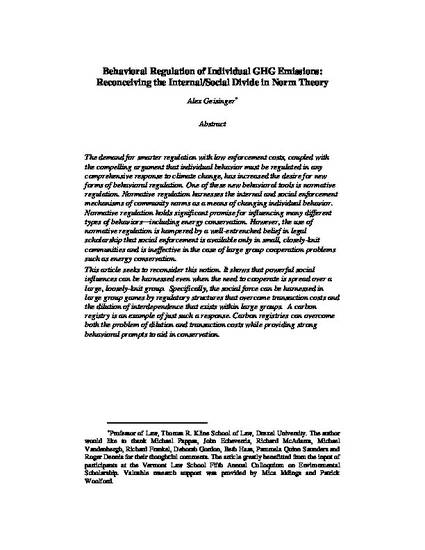
The demand for smarter regulation with low enforcement costs, coupled with the compelling argument that individual behavior must be regulated in any comprehensive response to climate change, has increased the desire for new forms of behavioral regulation. One of these new behavioral tools is normative regulation. Normative regulation harnesses the internal and social enforcement mechanisms of community norms as a means of changing individual behavior. Normative regulation holds significant promise for influencing many different types of behaviors—including energy conservation. However, the use of normative regulation is hampered by a well-entrenched belief in legal scholarship that social enforcement is available only in small, closely-knit communities and is ineffective in the case of large group cooperation problems such as energy conservation.
This article seeks to reconsider this notion. It shows that powerful social influences can be harnessed even when the need to cooperate is spread over a large, loosely-knit group. Specifically, the social force can be harnessed in large group games by regulatory structures that overcome transaction costs and the dilution of interdependence that exists within large groups. A carbon registry is an example of just such a response. Carbon registries can overcome both the problem of dilution and transaction costs while providing strong behavioral prompts to aid in conservation.
Available at: http://works.bepress.com/alex_geisinger/10/
